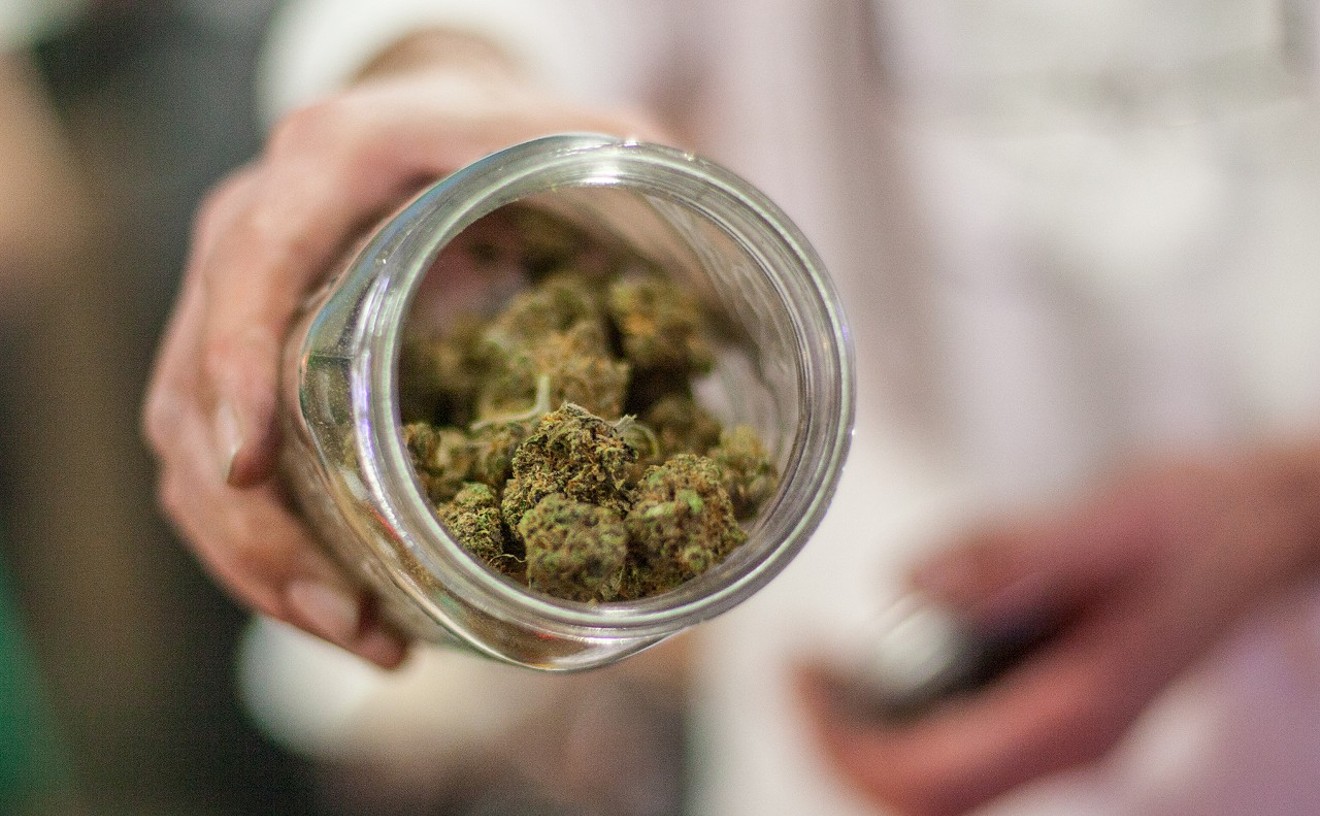Coloradans are eagerly awaiting the state's medical psilocybin rollout after approving Proposition 122, last November's psychedelics legalization and decriminalization initiative, but all these new mushroom businesses can't operate without a watchdog. Someone has to inspect facilities and make sure the fungi are following the rules.
Enter the Natural Medicine Division.
An offshoot of the state Department of Revenue, which also oversees the cannabis and liquor industries in Colorado, the Natural Medicine Division was created by a bill passed by the state legislature earlier this year to address gaps in the voter-approved initiative and the powers it gave the state Department of Regulatory Agencies (DORA). Already experienced in the ever-evolving world of mind-changing-substance regulations, NMD leadership comprises Marijuana Enforcement Division staffers, including executive director Dominique Mendiola.
Similar to how the MED handles the cannabis industry, the NMD will license and regulate psilocybin production and sales and, potentially, edibles production and extraction. Mendiola and her cannabis-seasoned team are looking for a new policy advisor, and plan to fill more positions as Colorado's psychedelic landscape grows — and they expect it to grow quickly. Applications for medical psilocybin facilitators and businesses could be available as soon as next year, while DMT, ibogaine and mescaline will be evaluated by DORA for potential medical legalization down the road.
Although medical psilocybin use can take place at licensed, supervised facilities, and the NMD has already begun discussing which kind of psilocybin edibles and extraction methods should be allowed, Mendiola is careful to differentiate the path of legal psychedelics from that of cannabis, which has more of a retail aspect.
"There are a lot of areas where we could look to leverage these skill sets within the NMD with recognition to very big distinctions between cannabis and natural medicines, and there is a lot of different history tied to it all," she notes, adding, "There has been so much that we've learned about the space that is very different than cannabis. ... It's also a really great opportunity for us to reflect on not just things that we have done well, but lessons learned — where have we stumbled or had moments where we can reflect on."
Mendiola, deputy director Kyle Lambert and policy director Allison Robinette, all of whom work in cannabis licensing, have been cramming information and research about Indigenous psychedelics use, federal laws and the science surrounding psilocybin production and facilitation since voters approved Prop 122, or the Natural Medicine Health Act.
"It's critical that we understand processes, how regulations would impact businesses and licensees that are, you know, looking to be a part of the program. It's about understanding there is a learning curve in understanding how it is cultivated. How is it manufactured? Getting into those details are critical for us as implementers to be able to contribute to the rulemaking processes and be able to make recommendations that are sound," Lambert says.
Still, there's a decriminalization aspect to Colorado's new laws that allows people 21 and over to cultivate, possess and share any of the four decriminalized psychedelics, and currently there are no cultivation or possession limits. Although retail sales are illegal, there are already co-ops and gray-market businesses selling psilocybin in Colorado under perceived loopholes and legal allowances.
According to Mendiola, the NMD is well aware of a burgeoning underground industry in Colorado and would prefer to "not go at it with an enforcement-first approach," she says, acknowledging that loose legal interpretations and a criminal underbelly are typical side effects when states legalize new substances.
"How do we look to support that transition in a thoughtful way, knowing that there have been activities that have been ongoing? How do jurisdictions like Denver, where they really took an initial lead in the space, approach it? How are we working with local jurisdictions but also recognizing that there's a big difference between cannabis in this space? Once again, there isn't going to be, like, a dual licensing framework," she adds. "That's not just about our enforcement, but helping inform other agencies' enforcement, or how they're going to approach that."
The NMD held a series of public information and rulemaking suggestion sessions for potential psilocybin regulations in September and October, and will host another four public meetings this month and next. Topics include psychedelic cultivation and manufacturing, first responder and harm reduction training, public education campaigns, psilocybin lab testing and upcoming psychedelic laws.
[
{
"name": "Air - MediumRectangle - Inline Content - Mobile Display Size",
"component": "12017618",
"insertPoint": "2",
"requiredCountToDisplay": "2",
"watchElement": ".fdn-content-body",
"astAdList": [
{
"adType": "rectangle",
"displayTargets": "mobile"
}
]
},{
"name": "Editor Picks",
"component": "17242653",
"insertPoint": "4",
"requiredCountToDisplay": "1",
"watchElement": ".fdn-content-body",
"astAdList": [
{
"adType": "rectangle",
"displayTargets": "desktop|tablet"
},{
"adType": "rectangle",
"displayTargets": "desktop|tablet|mobile"
}
]
},{
"name": "Inline Links",
"component": "18838239",
"insertPoint": "8th",
"startingPoint": 8,
"requiredCountToDisplay": "7",
"maxInsertions": 25
},{
"name": "Air - MediumRectangle - Combo - Inline Content",
"component": "17261320",
"insertPoint": "8th",
"startingPoint": 8,
"requiredCountToDisplay": "7",
"maxInsertions": 25,
"watchElement": ".fdn-content-body",
"astAdList": [
{
"adType": "rectangle",
"displayTargets": "desktop|tablet"
},{
"adType": "rectangle",
"displayTargets": "desktop|tablet|mobile"
}
]
},{
"name": "Inline Links",
"component": "18838239",
"insertPoint": "8th",
"startingPoint": 12,
"requiredCountToDisplay": "11",
"maxInsertions": 25
},{
"name": "Air - Leaderboard Tower - Combo - Inline Content",
"component": "17261321",
"insertPoint": "8th",
"startingPoint": 12,
"requiredCountToDisplay": "11",
"maxInsertions": 25,
"watchElement": ".fdn-content-body",
"astAdList": [
{
"adType": "leaderboardInlineContent",
"displayTargets": "desktop|tablet"
},{
"adType": "tower",
"displayTargets": "mobile"
}
]
}
]













